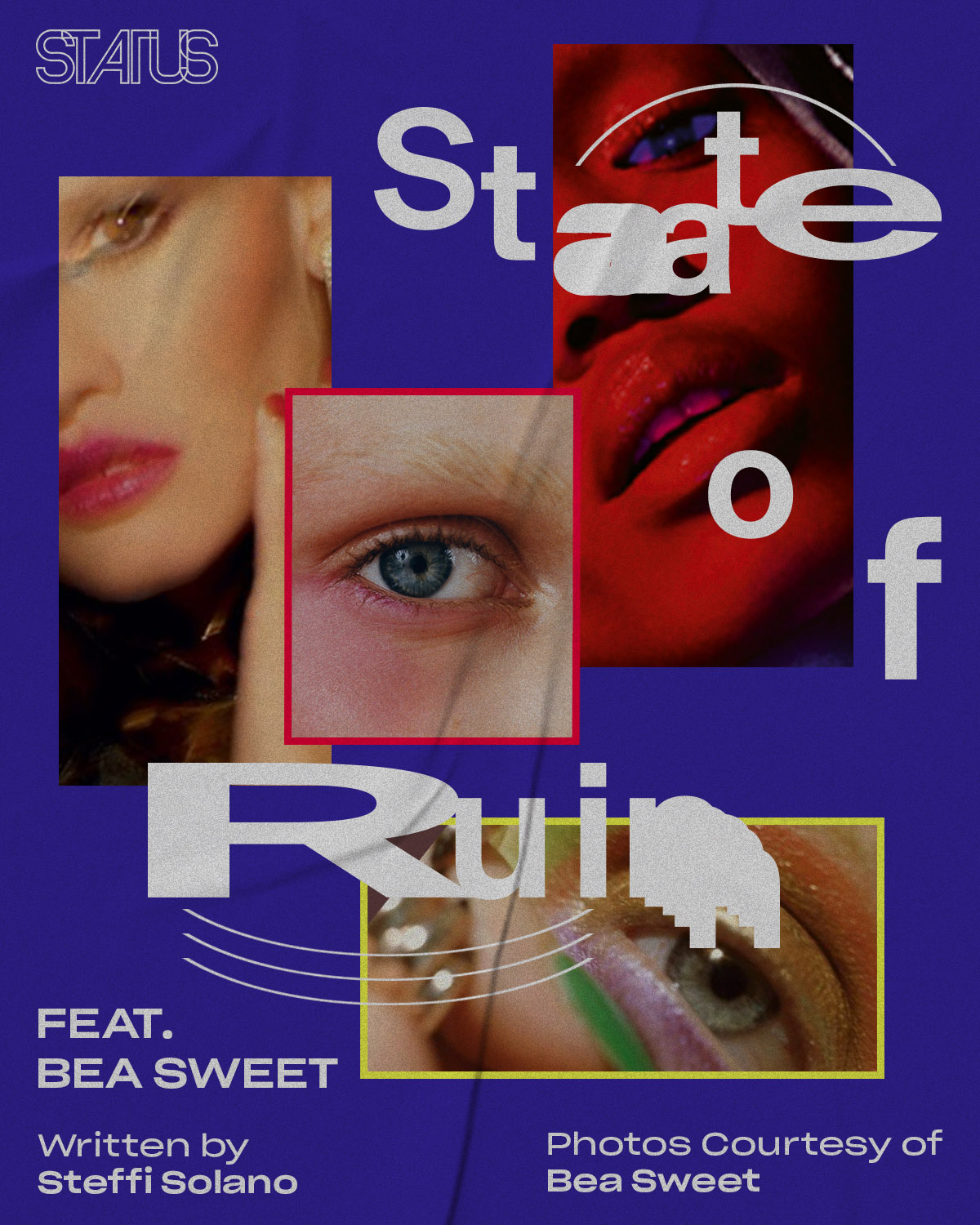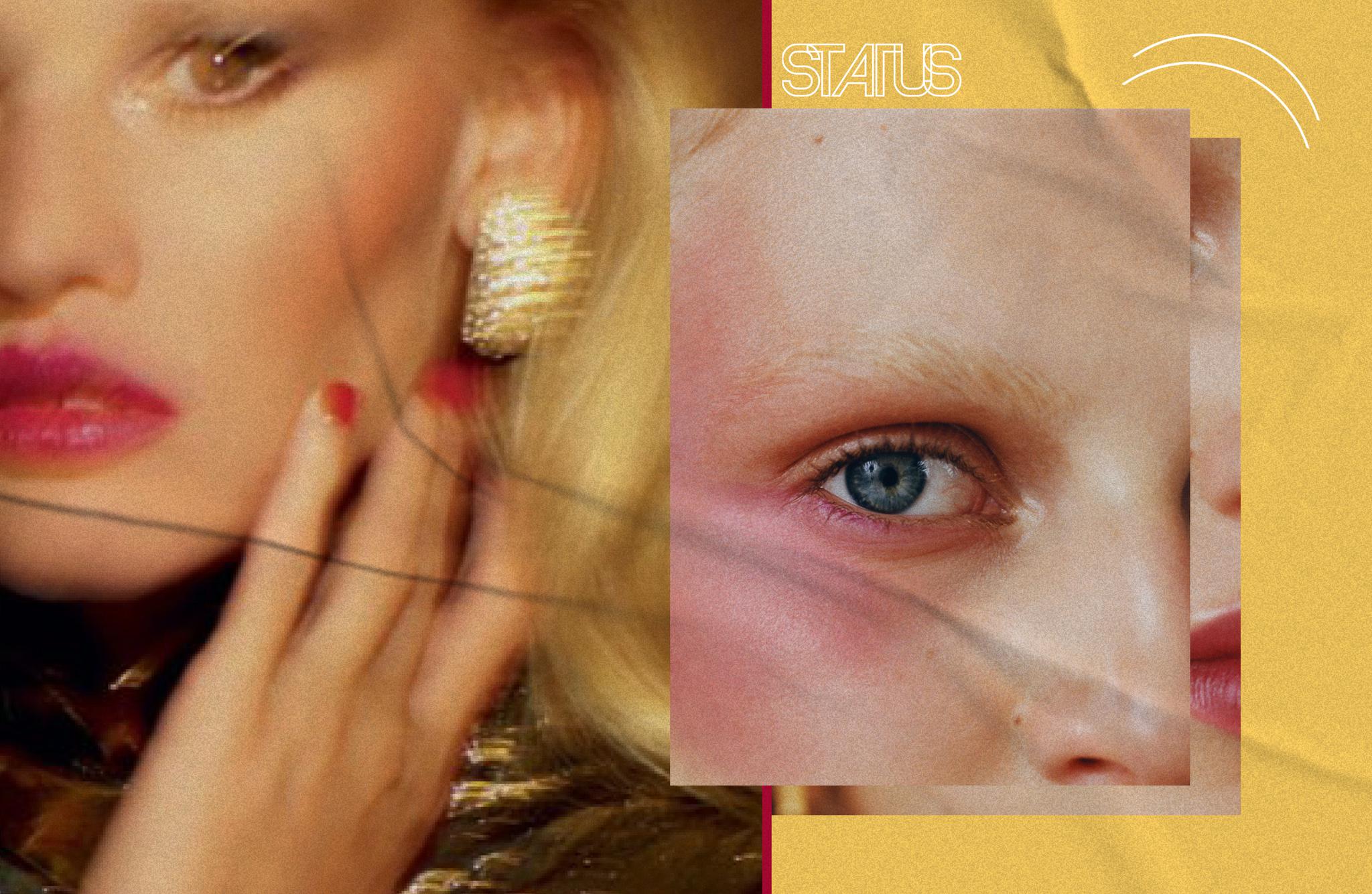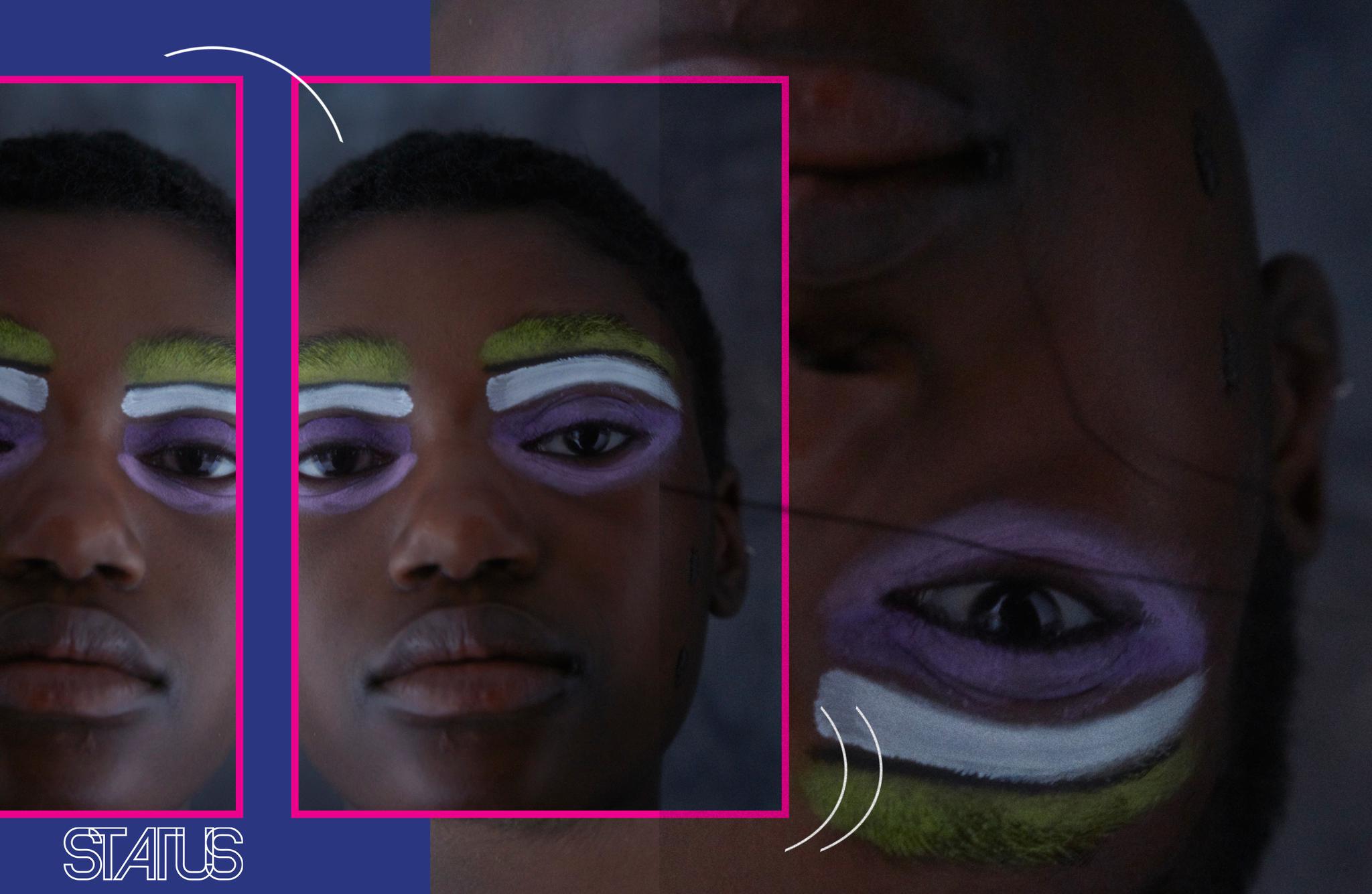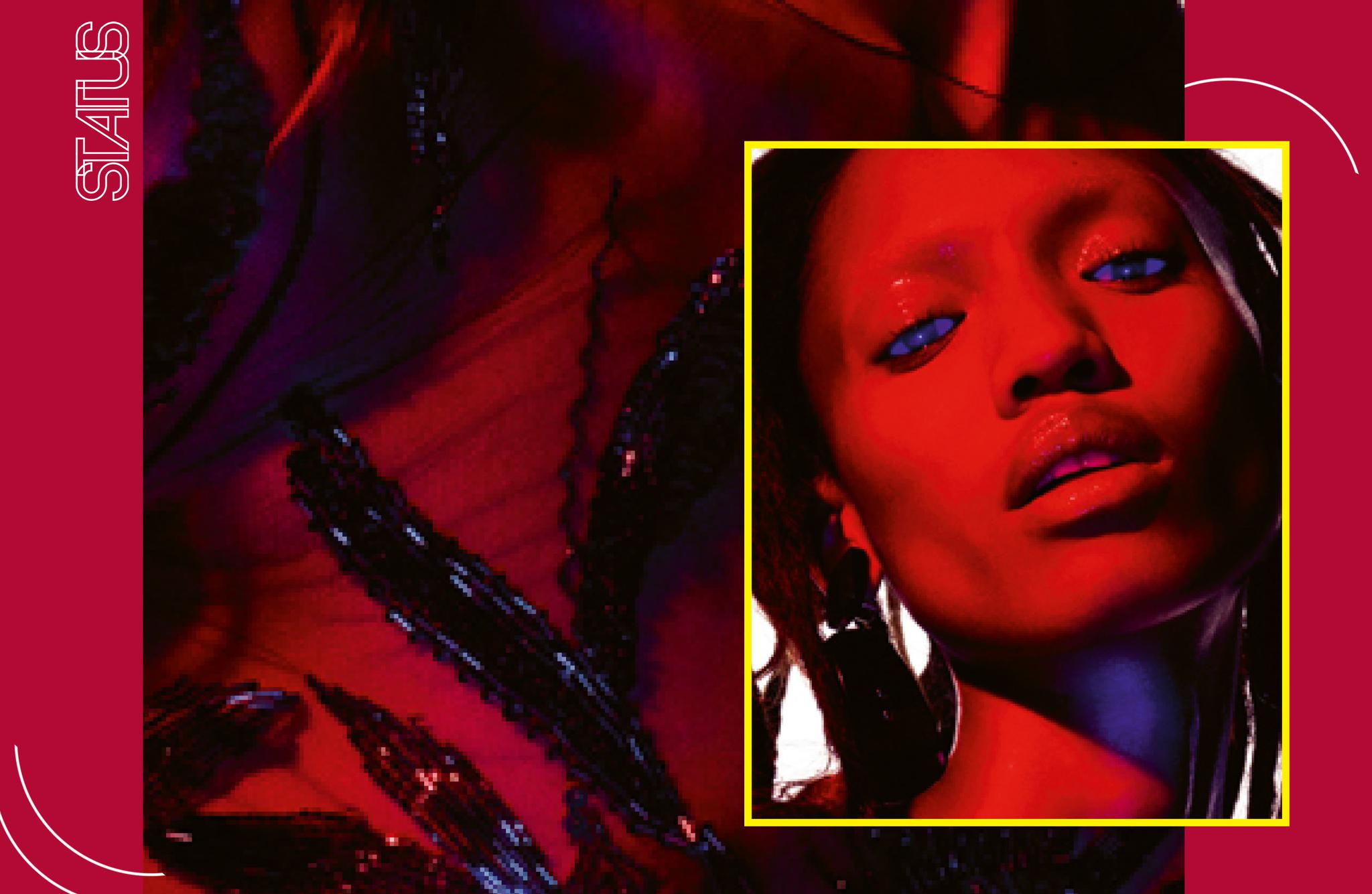Bea Sweet is Shaking Things Up with a Deconstructed Take to Beauty
In a glitz and glam industry prone to cliché, makeup artist BEA SWEET intends to be a part of the revolution for change. With the language of beauty wielding great power in influence, particularly to those who look to the media—fashion editorials, campaigns, cosmetic advertising—for inspiration, there’s definitely a great need for more breakthroughs and progressive change and to ultimately shift the way we see beauty.

Possessing a background in theatrical prosthetics, Bea applies facets of knowledge she cultivated from that area of expertise into her work now—attached with experimental sensibilities and a transformative viewpoint as she exhibits a deconstructive take to beauty; showing us all that makeup is indeed a form of high art.
Before becoming a fashion week regular, doing major fashion campaigns, and working with big names like Kali Uchis, Charli XCX, and FKA Twigs, Bea started out dabbling in hair & makeup with friends at a small working class seaside town in Southend-on-Sea in Essex, England. “Where I’m from, you don’t have those kinds of jobs—the closest link you'd get to working in the industry would be to work behind a makeup counter or in a hair salon,” she shares and tells of a golden moment gaining the shot to work in the industry at a night-out at a London fetish club. “I did hair and makeup on my friends before we went out to clubs. I partied at Torture Garden and ended up working with some of the designers and performers at the shows there. Looking back, I really wasn’t very good, but that’s not the point. I was beginning to do things for myself [and] try things out. I was learning. I was in the development stage.”
“I am never going to knock another artist’s work. The whole point is that [makeup] is subjective and that is the beauty of the freedom we are granted.”

Despite the visual state of ruin stylistically prominent in her work, Bea is all about learning and organization and it comes with no surprise that this great level of detail is involved in such a fascinating approach such as hers. She veers away from being influenced by others, a quality notably evident in her original creations. “I don't look at other makeup artists’ Instagrams, I don’t like to be influenced at all,” she expresses and shares the measures she takes to control how her work will flow. “I make moodboards and talk to the photographer or stylist or art director—a lot of whoever I’m planning to shoot with. It’s not that I’m a control freak, I just don’t like to waste people’s time.”
Contrary to what most people might think, being a makeup artist isn’t all about the glamor that it exhibits. No day is the same or even predictable at most and it definitely takes a team (and three Eastpak suitcases) to execute the brilliance we often see before our very eyes. But with this distinct style that stands out and sets itself apart from other more popular, glamorous, and ‘wearable’ makeup, Bea states that there is no correct definition. Makeup is encompassed with a plethora of elements that should be embraced no matter one’s preference for a particular method or approach. “I am never going to knock another artist’s work. The whole point is that [makeup] is subjective and that is the beauty of the freedom we are granted.”

In an industry that’s challenging to penetrate and survive in, Bea is honest in saying her greatest accomplishment is enduring financially in a climate that is so cruel, especially being a creative in an upscale hotpot like London. She goes in unabashed in facing other challenges as we speak to her about beauty icons, feminism and inclusivity in beauty, and stepping out of the box.
“I prioritize the experiences of women throughout my work, I always want her to have the power and I will always give her a platform. The word "female" is never removed from my day-to-day life.”

Can you describe what a typical day is like for a busy make-up artist like yourself? What involves your regular schedule?
I could be shooting editorial, beauty, on location, in a studio, shooting a music video, a campaign, a lookbook, with a celebrity or at London Fashion Week or in Paris keying a show. I very rarely have days off but when I do, I try to rest as much as I can; fit in a couple of meetings, preferably in the morning, go to yoga in the afternoon or ballet in the evening, and start moodboarding or updating moodboards during the day that I’ve been working on for clients. If shooting, call times are usually around 9 AM or earlier but I like to be early and set up before the model arrives. I have three giant Eastpak suitcases that follow me everywhere, except when I’m flying and have to cut my baggage down to 23kg and my first assistant comes with me to almost every job I do and he has the job of sorting out the kit. I couldn't do it alone.
How did you decide on your style? What is it about graphic, sometimes deconstructed makeup that gravitated you towards it?
I think this very much has to do with my gaze. I’m a young, female, feminine artist. I'm gay, my gaze is different, I have a different viewpoint to offer. I will view a woman differently to that of cis-gendered straight men, gay men, cis-gendered heterosexual women. I prioritize the experiences of women throughout my work, I always want her to have the power and I will always give her a platform. The word "female" is never removed from my day-to-day life.
What has been the most challenging project you ever took on?
I recently approached the sculptor Wilfrid Wood to sculpt eight models life-size heads for me on which I could do some makeup. I ended up visiting his studio for a few hours almost everyday for over a week, I don’t think Wilfrid had expected me to be invading his space as much as I did when he agreed to the project! It was challenging in that I was working directly on another artist’s work, one that I admire hugely. To put it quite simply, I didn't want to f*ck up.
Who are your beauty icons?
Alek Wek is perfection to me, I love Leslie Winer's face especially now with some age. I really love how my friend Matty Bovan applies his makeup, it's almost like an illustration, I like this approach.
What is one makeup rule you swear by?
No glittery highlight. Not even a shimmery highlight. Just a sheer highlight, if any.
You’ve been outspoken about inclusivity in the beauty community. With the industry’s current state, what do you think needs to be done or improved on? Where do you think it’s headed?
People of color need to hold positions in places of authority—in consulting, behind the scenes and included within teams as well as visually on billboards and in campaigns. Access needs to be granted to them, spaces created for them, they have to be welcomed & considered, they need to be consulted and listened to all the way along the process of production lines. When creating foundation lines, deep & dark tones nearly always seem like an afterthought with only a few deeper tones created, people of colour are often tokenized in the advertising afterwards; it rarely feels believable. I do believe there are brands that are genuinely inclusive and I am generally lenient when a brand admits the error of its ways but it's not for me to forgive. I think BBZ are hugely inspirational, they are a club night/curational collective from Southeast London prioritizing the experiences of queer womxn, trans and non-binary people of color. If you ever need to find POC to hire for consulting with, then look no further.
Finally, what are your future plans? What else can we expect to see from Bea Sweet?
Change, a rest, authenticity.
Written by Steffi Solano
Photos courtesy of Bea Sweet
Post a comment